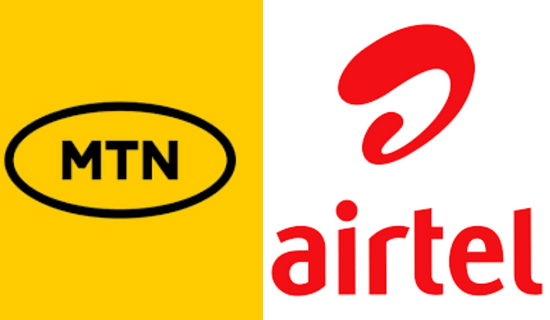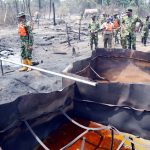In a two-minute documentary in early September entitled “War on Crude Oil Theft”, the Nigerian National Petroleum Company Limited (NNPCL) said it found and destroyed 93 illegal pipeline connections and 69 illegal refineries between July 15 and 21, 2023 in the Niger Delta. The NNPC documentary reminded Nigerians about the loss of at least 100 lives to a terrible fire incident in Egbema, Imo State in April 2022 when an illegal refinery went up in flames. These illegalities and avoidable deaths speak to the country’s culture of waste of human capital, natural resources and precious property. The exploits of NNPCL are at best peripheral, and a fire-brigade approach to solving Nigeria’s notorious cases of oil theft, illegal refineries and pipeline vandalism.
Nigeria depends on war-torn Ukraine for wheat and other cereal crops, yet its army, so good at spotting and destroying illegal refineries, have not done much to stop terrorists from killing farmers and animals destroying crops around Nigeria. Nigerian farmers live in internally displaced camps, while herders roam free with guns. Make no mistakes, illegal refineries are unlawful, and there is enough evidence to show that they contribute enormously to fouling the environment, just as gas flaring by multinational oil companies since the 1950s. But the high-rise 47% youth unemployment and run-away official corruption in Nigeria are major contributory factors to the booming illegal trade in oil refining, which has become so flourishing that heavy-duty trucks are known to load from the businesses.
Join our WhatsApp ChannelDevelopment Is About Using Local Resources To Solve Local Problems
An online video surfaced last week and immediately went viral. A woman was seen talking about her unnamed country, which she says imports Nigeria crude and resells refined fuel to Nigeria. For another developing country, the woman joked that her country imports their raw water and resells refined water to the same country, adding that though well-developed, her country has no natural resources. No wonder the National Bureau of Statistics (NBS) reported that between July 2022 and July 2023, fuel price increased by 215.95% due to the volatility of the international market, as Nigeria has removed fuel subsidy.
Despite being Africa’s biggest oil producer, Nigeria also ranks among the highest importers of petroleum products in the whole of Africa. Nigeria has four major refineries in, namely, Old Port Harcourt Refinery, with a producing capacity of 60,000 barrels per day (bpd), Warri Refining and Petrochemical Company (125,000 bpd), Kaduna Refining and Petrochemical Company (110,000 bpd), and New Port Harcourt Refinery (150,000 bpd) all giving a total of 445,00 barrel per day but were shut down in 2021.
One of the most ordinary things said about development is that the presence of skyscrapers and beautiful roads in a country is only a symptom, not the substance of growth and improvement. In its 63 years of existence, Nigeria, and many African countries have ignored this simple truth and are suffering the consequences. Almost every technology-based system is engineered outside Nigeria. Worse is that the country helps the foreign multinationals to kill local initiatives, as is being done currently in the area of refineries.
Almost every week, the country boasts that troops have neutralized hundreds of illegal refineries. Yet, for over 25 years, Nigeria does not have a functional refinery for premium motor spirit (PMS), implying that the over 50 million litres of PMS used daily in the country are imported. Between 2015 and 2021, the NNPC spent about N2 trillion to refurbish the four existing refineries, which have still failed to produce refined fuel. Some analysts say this amount is enough to build three new refineries going by costing of fuel refineries elsewhere in the world.
The Niger Delta University and Rivers State of Science and Technology offer courses in Petrochemical engineering, and they have at various times called on government to partner them in building modular refineries. Notably, the Edo modular refinery, with a capacity of 6000 barrels per day (bpd) private outfit, is fully operational, though it still sells diesel, Naphtaha and low pour fuel oil (LPFO). In March 2024, a 12000bpd, phase 2 modular refinery is expected to commence in Edo. There are also the Waltersmith Modular Refinery in Ohaji Egbema, Imo State, and the Ogbele, Rivers State modular refinery, with 11,000bpd. However, these refineries are experiencing various forms of hold-up in starting off with full production of refining, especially the PMS much needed by cars in Nigeria.
A Harvest Of Illegalities
The creeks of Niger Delta, Bayelsa among others is the common or dominant location of illegal refineries. As of February 2023, at least 5,840 illegal refineries operated in the Niger Delta region, and according, to Ahmed Audi of the Nigeria Security and Civil Defense Corps, (NSCDC), over 100 illegal refineries have been destroyed in the last two years. In the process, it was said that troops recovered 186,000 liters of crude oil, 42,750 liters of Automotive Gas Oil, 4,500 litres of Premium Motor Spirit and 200 litres of Dual Purpose Kerosene. Speaking to Deutsche Welle (DW) International recently, Solomon Diri-Ogbere, the spokesperson for Nigeria Security and Civil Defense Corps, Bayelsa State, said: “Sometimes when we try and destroy most of these illegal refineries that you see in the creeks, they will still go to fix it back, we will still go back to destroy it.”
Of the over 40 different natural resources in Nigeria, crude oil and gas are almost the only legally explored (not refined) in Nigeria. The rest have been illegally explored for decades in the full glare of all, though also in full scale violence. In Plateau, Zamfara, Taraba, Oyo, Niger and Ebonyi States, Nigeria’s mineral resources are fully in the command of violent gangs and terrorism, most of whom operate with the backing and firearms of foreign companies. The Nigerian Extractive Industries Transparency Initiative (NEITI) recently praised the strong performance of the oil and gas sector, but also lamented that 80 % of the mining activities in Nigeria are illegal and that this has adversely affected the country’s gross domestic product (GDP). The NEITI noted that Nigeria lost a staggering 619.7 million barrels of crude oil valued at N16.25 trillion ($46.16 billion) to oil theft between 2009 and 2020.
As it is, only political will to fight corruption, as well as the maximal use internal human and material resources to develop the oil sector will help the course of the fuel curse in Nigeria. Anything else is wilful collaboration with powerful national and international interests to hold Nigeria down. What kind of society spends over two decades debating oil subsidy, ignoring the need to build new refineries? What kind of society spends huge resources chasing after operators of illegal refineries, when there is no legal refinery? Why not harvest the illegal talent and build local legal refineries in association with the petrochemical departments in the country?

















Follow Us